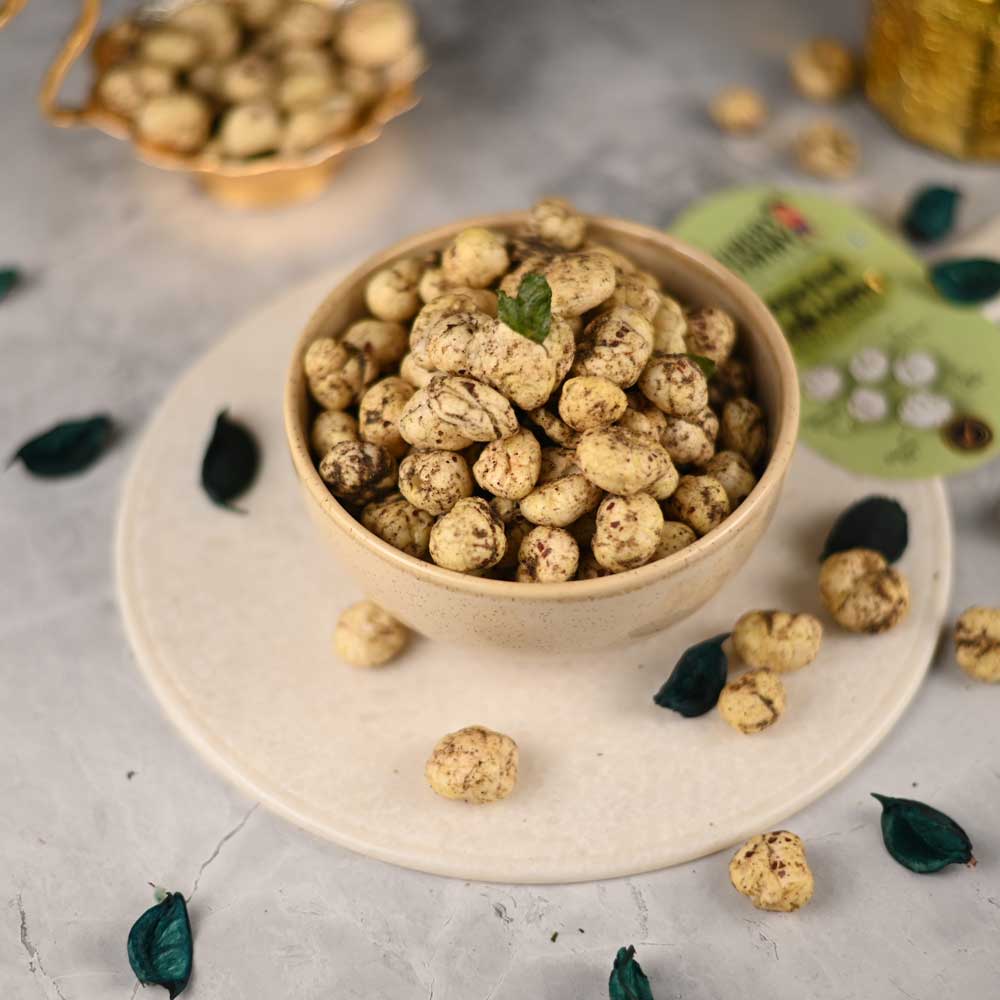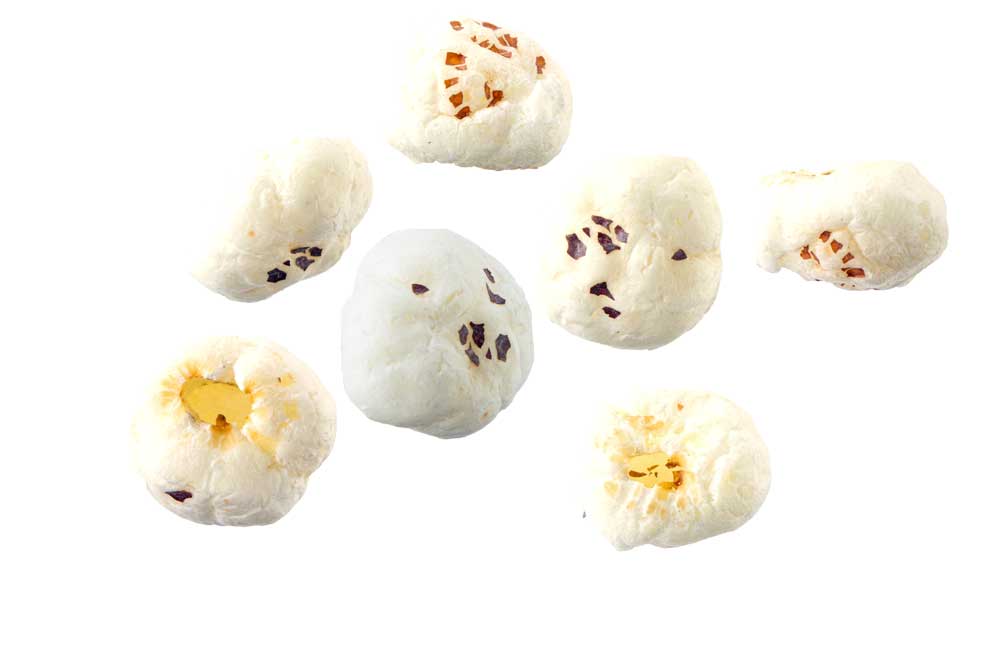For years, the makhana lived quietly in Indian kitchens, roasted in ghee, tossed with salt, and handed out by grandmothers as the perfect light bite. Recently though, it has undergone a full-blown reinvention. Rebranded as a superfood, the makhana is now found in chic flavours like tandoori, wasabi, peri peri, and even chocolate.
This is no accident. Thanks to an increased awareness about clean eating, especially post-pandemic, more people are choosing wholesome, plant-based snacks. Makhanas tick all the right boxes.

During this year’s budget speech, Nirmala Sitharaman declared that a ’Makhana Board‘ would be set up in Bihar. The initiative aims to enhance production, processing, value addition, and marketing of makhanas — commonly known as fox nuts or popped lotus seeds. The announcement struck a chord, especially considering that Bihar contributes nearly 80 per cent of India’s makhana supply. Despite this dominance, the state has long struggled to tap into the booming international demand for the superfood.
What Makes Makhana A Superfood?
Makhanas may look simple, but they’re packed with nutrition. Here's why they’ve earned a spot in global health food circles:
• High in protein, especially beneficial for vegetarians
• Rich in antioxidants, including flavonoids that help fight free radicals
• Low in calories and fat, making it perfect for weight watchers
• A great source of magnesium, potassium, phosphorus, and iron
• Gluten-free and suitable for diabetic and heart-friendly diets
• Low glycaemic index, helping manage blood sugar levels
Its low glycaemic index and high fibre content make it a hit with health-conscious consumers, especially those looking to move away from processed snacks and carb-heavy options.

Going Global
The makhana’s rise isn’t anecdotal—it’s backed by data. India is now the largest exporter of makhana in the world. In FY 2023–24 alone, the country exported approximately 25,130 metric tons of makhana. The top buyers? The United States, Canada, and Australia—with the US leading the pack in consumption.
This export surge has also led to increasing visibility for Indian companies catering to global markets. Industry insiders report a consistent uptick in demand, with makhanas finding space not just in desi grocery stores abroad, but also in health food aisles, protein bar recipes, and granola mixes.
For years, farmers in Bihar have grown makhana in the wetlands of Mithilanchal and surrounding regions. The process is labour-intensive, but the rewards are worth it. However, due to a lack of structured marketing, processing facilities, and value-addition opportunities, much of the potential remained untapped—until now.
The proposed Makhana Board promises to change that. By streamlining everything from harvesting to branding, the board could finally help Bihar cash in on this global craze, empowering local farmers and boosting rural livelihoods in the process.

So, the next time you grab a packet of makhanas, remember, you're not just indulging in a crunchy treat. You’re tasting a snack with centuries-old roots, now ready to conquer the world.